Login to your account
- Prescription included
- Genuine medication
- All-inclusive service - No hidden fees
- Free next-day delivery
Diabetes
Get diabetes medication with an online prescription
Diabetes is a condition that occurs when a person's blood sugar levels are too high. There are two types of diabetes: type 1 and type 2 diabetes. Diabetes affects nearly 4.9 million people in the United Kingdom, with 90% diagnosed with type 2 and 8% diagnosed with type 1. While there is no cure, lifestyle modifications and medication can help manage the condition.
If you have been diagnosed with type 2 diabetes, you can purchase treatment online from euroClinix. Simply complete an online consultation, which will be reviewed by our doctors to ensure that the treatment is appropriate for you. We offer a variety of delivery options to ensure that your medication arrives on time.
On this page
What is diabetes? What are the differences between type 1 and type 2 diabetes? What are the symptoms of diabetes? What are the causes of type 2 diabetes? What are the causes of type 1 diabetes? What are the complications of diabetes? How is type 1 diabetes treated? How is type 2 diabetes treated? Can type 2 diabetes be prevented? Should I follow a special diet if I have diabetes? Can I buy type 2 diabetes treatment online?Available Treatment(s)

- Treats type 2 diabetes
- Available as oral tablets
- Controls blood sugar levels

- Effectively manages type 2 diabetes
- Helps the body control blood sugar levels
- Suitable when diabetes cannot be controlled by metformin alone
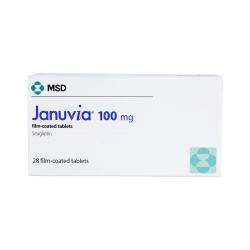
- Contains the active ingredient sitagliptin
- Promotes insulin production
- Lowers glucose overproduction
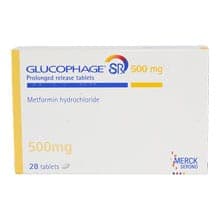
- Effective treatment for type 2 diabetes
- Significantly reduces high blood sugar levels
- Takes the form of prolonged-release tablets
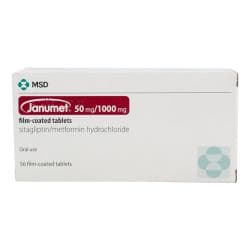
- Proven effective treatment for type 2 diabetes
- Lowers the amount of glucose made by the body
- Easy to take tablet twice daily in tablet form
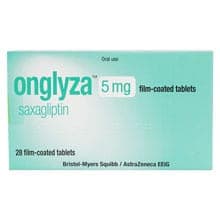
- Treats noninsulin-dependent diabetes
- Controls blood glucose levels
- Contains active ingredient saxagliptin
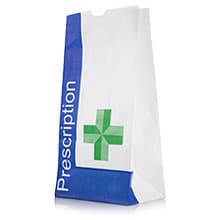
- Effective treatment for noninsulin-dependent diabetes
- Reduces the amount of glucagon produced
- Tablets come in a 50mg/850mg or 50mg/1000mg dose
What is diabetes?
Diabetes mellitus, more commonly known as diabetes, is a chronic condition that affects how the body uses energy from food. After we eat, food is broken down into sugar, or glucose, and is released into the bloodstream. This increases blood glucose levels, signalling the pancreas to release insulin, a hormone that allows blood sugar into the body’s cells to be used as energy.
In diabetes, the body either does not make enough insulin (as in the case of type 1 diabetes) or cannot use insulin effectively (as in the case of type 2 diabetes). Without insulin, blood sugar stays in the bloodstream, increasing blood sugar levels. This can lead to serious health complications.
What are the differences between type 1 and type 2 diabetes?
Type 1 and type 2 diabetes are both a result of the body not being able to store and use glucose properly.
Type 1 diabetes
Type 1 diabetes is usually diagnosed in children and teenagers, but can occur in adults as well. It is an autoimmune disease characterised by the body's inability to produce insulin. This is because your body incorrectly identifies the cells in your pancreas that produce insulin as harmful, attacking these cells and preventing insulin production. Insulin's main role is to allow glucose, our body's main energy source, to enter our cells. Without enough insulin, glucose builds up in the bloodstream, leading to high blood glucose levels. People who have type 1 diabetes must inject themselves with insulin or have an insulin pump to manage their blood sugar levels.
Type 2 diabetes
Type 2 diabetes typically occurs with increased age, but can sometimes show up in younger people. In type 2 diabetes, cells become resistant to insulin and cannot use it effectively - this is known as insulin resistance. The pancreas may also not produce enough insulin to manage blood sugar levels. Unlike type 1 diabetes, this type is related to lifestyle factors as well as genetics. Treatments are usually aimed at slowing the progression through a healthy lifestyle and careful monitoring of blood sugar levels. If blood sugar levels cannot be effectively managed through diet and exercise alone, medication may be prescribed to manage the condition.
Although the development and treatment for both conditions differ, the complications of untreated high blood sugar levels over the long term, such as cardiovascular disease, eye problems, and kidney failure, are the same.
What are the symptoms of diabetes?
The symptoms of type 1 and type 2 diabetes are usually the same, but differ in how quickly they appear.
Symptoms of both include:
- increased thirst
- frequent urination, especially at night (although there could be other causes for frequent urination)
- unintended weight loss
- feeling fatigued
- recurring thrush
- blurred vision
- slower healing cuts and wounds
In type 1 diabetes, these are normally intense and develop quickly over a short period of time, such as over a few weeks. Type 2 diabetes symptoms typically come on more gradually, meaning that the condition can often go unnoticed for several years.
What are the causes of type 2 diabetes?
There are certain factors that may mean you are at a higher risk of developing type 2 diabetes. These include:
- having a sedentary lifestyle
- being overweight or obese
- having prediabetes
- being over the age of 40, or over 25 if you are of African-Caribbean, Black African, or South Asian descent
- having a close family member, such as a parent, brother, or sister with type 2 diabetes
- having had gestational diabetes (diabetes during pregnancy)
- having non-alcoholic fatty liver disease
- having high blood pressure
- having polycystic ovary syndrome
Although some risk factors, such as family history, cannot be modified, it is possible to prevent or delay type 2 diabetes through lifestyle changes like eating healthier and maintaining adequate physical activity levels.
What are the causes of type 1 diabetes?
Unlike type 2, type 1 diabetes is not influenced by diet or lifestyle. The exact cause of type 1 diabetes is not known. However, scientists have found that genetics and environmental factors, such as contracting viral infections or low levels of vitamin D, can contribute.
What are the complications of diabetes?
Because all cells need glucose to function, type 2 diabetes affects many major organs. This includes your heart, blood vessels, nerves, eyes and kidneys. Diabetes also shares many risk factors with other serious chronic diseases, meaning that there are many coexisting conditions that may arise.
Complications include:
- cardiovascular problems such as heart disease, stroke, high blood pressure and the narrowing of blood vessels (atherosclerosis)
- nerve damage - over time, high blood sugar can damage nerves, causing pain and numbness that may begin at the extremities called diabetic neuropathy - his type of nerve damage can also cause erectile dysfunction
- kidney disease due to damage to the tiny blood vessels in the kidneys - over time, this can cause the kidneys to fail, which may require dialysis or a kidney transplant
- eye damage - diabetes can damage blood vessels in the eyes, which can lead to eye diseases like cataracts, glaucoma, and blindness, known as diabetic retinopathy
- skin infections - high blood sugar can dry out the skin, leaving those with diabetes more susceptible to cuts and and infections
- foot damage - diabetes can reduce blood flow to the feet, which means foot injuries do not heal as well and can lead to ulcers and infections
- slow wound healing, which can lead to serious infections that can cause further complications, such as damage that may need amputation
Maintaining your average blood glucose levels can significantly reduce your risk of developing long term complications. You are entitled to free, regular checks of your average blood glucose levels every couple of months from your healthcare provider. This test is known as HbA1c.
Hypoglycaemia
Hypoglycemia, or ‘hypo’, is a complication of diabetes where the glucose levels in your blood drop too low. It can affect everyone in different ways and symptoms can change over time but you’ll gradually learn how your body reacts. Some of the early signs of low blood sugar include:
- sweating
- fatigue
- tingling lips
- feeling hungry
- trembling
- fast or pounding heart beat (palpitations)
- mood changes
- turning pale
Your blood sugar levels may drop from taking certain medications, taking too much diabetes medication, skipping meals, not having enough carbohydrates or from intense exercise. If you feel like you have hypoglycaemia or you test your blood sugar levels and they are below 4mmol/l, you should first have a sugary drink or snack or take glucose tablets until you start to feel better or your blood sugar levels return to normal. You don’t normally require medical attention, but you should speak to your diabetes healthcare team if you experience hypo regularly.
Diabetic Ketoacidosis
Diabetic ketoacidosis (DKA) is a serious condition that usually affects people with type 1 diabetes, but can occur occasionally in people with type 2 diabetes. DKA is often a trigger for diagnosis in children and young people who have not yet been diagnosed with type 1 diabetes. DKA is caused by a severe lack of insulin which means the body can’t use glucose for energy. The body will use fat instead, causing a build up of chemicals called ketones in the blood. When this happens, your blood becomes acidic and can become serious if not treated quickly. The main symptoms of DKA include:
- high blood sugar levels
- feeling very thirsty
- needing to urinate more frequently
- confusion
- feeling tired
- blurred vision
- stomach pain
- feeling or being sick
- sweet or fruity-smelling breath
- passing out
DKA can be triggered if you are unwell, on your period, by a growth spurt or when you miss doses of your insulin. However, it can easily be prevented by regularly monitoring your blood sugar levels. If you suspect you have signs of DKA, it’s important that you test your ketone levels using a blood ketone monitor or urine testing strips. If you have higher ketone levels than usual as well as symptoms, you should seek medical attention.
How is type 1 diabetes treated?
The main treatment for people with type 1 diabetes is taking insulin. The most common way of taking insulin is by injection using an insulin pen. Insulin injections come in two different forms: reusable insulin pens that are filled with cartridges or pre-filled pens that have to be disposed of after use. Alternatively, there are insulin pumps. These are small electronic devices that are attached to the body by a small tube (a cannula) that gives your body regular insulin throughout the day. These pumps are only available to people diagnosed with type 1 diabetes.
There are many different types of insulin as well as complications if not taken correctly, so it’s important to speak to your healthcare team. They can then decide which is the best treatment option for you and help you to manage your condition.
How is type 2 diabetes treated?
Diet and exercise
The first line of treatment is usually through improvements in diet and increased exercise. There is no set diet or exercise plan for diabetes, but eating a varied and balanced diet and doing up to 2 hours of any exercise a week can be extremely beneficial. A healthy diet and adequate exercise can increase insulin sensitivity, improve cholesterol and blood pressure levels (both are risk factors for diabetes), and help you maintain a healthy weight. Diet and exercise can even put your diabetes into remission - meaning that your blood sugar levels are below the parameters used for a diabetes diagnosis.
Tablets and medication
If diet and exercise alone are not effective in managing your blood sugar levels, you may be prescribed medication.
The most common type of medication is Metformin. Metformin decreases the amount of glucose released into the bloodstream and makes your body more responsive to insulin. Other medications include: alpha-glucosidase inhibitors, dopamine agonists, DPP-4 inhibitors, GLP-1 receptor agonists, meglitinides, SGLT-2 inhibitors, sulfonylureas, and thiazolidinediones.
Insulin is rarely prescribed for people with type 2 diabetes, especially in the early years. It is only if typical medicines stop working that insulin is offered.
Weight loss surgery
Weight loss surgery, also known as bariatric or metabolic surgery, may be recommended for those with diabetes who also have a BMI over 35 and have been unsuccessful in losing weight despite trying other weight loss methods. If you are considering weight loss surgery, speak to your GP who can refer you to a surgeon.
Can type 2 diabetes be prevented?
While family history and genetics play a role in the development of type 2 diabetes, you take steps to reduce your risk by:
- following a healthy diet, choosing nutrient-dense foods like vegetables and fruit and keeping in mind portion sizes - one study has shown a 50% reduction in diabetes risk among those who consume more fruits and vegetables
- exercising regularly - the NHS recommends getting at least 150 minutes of moderate intensity physical activity (such as brisk walking or cycling) or 75 minutes of vigorous intensity activity a week (such as running or strength exercises)
- maintaining a healthy weight - losing 5 to 7 percent of your body weight may help prevent or delay diabetes
- quitting smoking if you currently smoke - smokers have a 30-40% increased risk of developing diabetes
- lowering your alcohol intake - excessive alcohol consumption can increase your risk of developing the condition
Should I follow a special diet if I have diabetes?
There is no specific diet programme you have to follow, but there are some general recommendations for a healthy diet for diabetes. These include:
- following a regular eating schedule - do not skip meals
- being aware of portion sizes
- eating foods high in fibre, such as fruits, leafy vegetables and whole grains
- eating fewer amounts of sodium, sweets, and refined grains
You may also benefit from seeing a registered dietitian, who will be able to help you monitor your carbohydrate intake, plan well-balanced meals and keep healthy habits to help with your diabetes management.
Can I buy type 2 diabetes treatment online?
If you have been diagnosed with diabetes, you can purchase Metformin online from euroClinix. To ensure that this treatment is suitable for you, you will need to complete a simple online consultation. Once approved by our doctors, they will issue a prescription and our UK pharmacy will dispense and deliver it straight to your door with free next-day delivery.
- What is diabetes?
- What are the differences between type 1 and type 2 diabetes?
- What are the symptoms of diabetes?
- What are the causes of type 2 diabetes?
- What are the causes of type 1 diabetes?
- What are the complications of diabetes?
- How is type 1 diabetes treated?
- How is type 2 diabetes treated?
- Can type 2 diabetes be prevented?
- Should I follow a special diet if I have diabetes?
- Can I buy type 2 diabetes treatment online?
Further reading

Understanding and managing Metformin's side effects
Reviewed by Dr. Caroline FontanaSelect
medicationFill out a short
medical formDoctor issues
prescriptionMedication sent
from pharmacy
